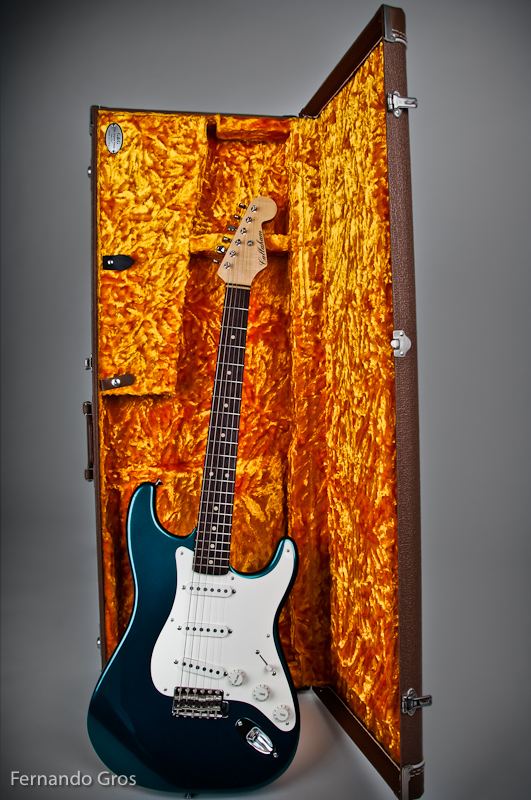Further Thoughts On Audio Quality
Last week I wrote a speculative post asking if we might be on the verge of a new “golden age” in audio quality. I was thinking aloud if ever lower prices for computer data storage, coupled with a growing frustration with MP3 audio quality might lead to change in direction for consumers, with more people […]
Last week I wrote a speculative post asking if we might be on the verge of a new “golden age” in audio quality. I was thinking aloud if ever lower prices for computer data storage, coupled with a growing frustration with MP3 audio quality might lead to change in direction for consumers, with more people opting for higher quality formats.
Of course, the sad truth is that a lot of people seem perfectly happy with the current offerings – typically low quality, highly compressed MP3 played through second rate earbuds. As much as I might see positive signs in the shelf space being allotted to better quality headphones, the growth of portable high spec Digital-to-Analog converters and the ever broadening availability of FLAC downloads, the fact remains that the largest slice of the market seems content with “iPod” sound.
On the flight to Adelaide (I’m here for a few days visiting family), I paused over Steve Guttenberg’s editorial in Stereophile magazine. Of course, this is an opinion from the ranks of the Audiophile class (the magazines cover story is a review of B&W’s new 800 Diamond speakers, only $24,000US a pair!). However, the following lines do echo my thoughts.
“Is digital the cause of music’s doldrums, or has it been the insatiable drive for technical perfection that has sapped music’s spirit? No one can say for sure, but it’s a fact that music’s function has morphed so slowly from foreground to background listening that most people haven’t noticed it happening. One thing is certain: Recorded music doesn’t engage listeners the way it did in the analog days. Music now serves as a backdrop as people talk, read, drive, work, exercise, etc. Foreground listening is what audiophiles do – but other than us, very few people really listen to music anymore, even when attending live concerts. If recorded music isn’t worth your undivided attention, it’s not worth paying for.”
People have always listened to music in the background sense. But, the point is more to the way music now seems to only exist in the background, as the “soundtrack to our lives” (what an awfully conceited phrase). Nowhere is this more noticeable that in the behaviour of people at pop concerts.
Of course, different audiences will exhibit different levels of concentration – a pop audience behaves differently to a jazz, or classical audience. But, at recent concerts I’ve been to, it’s not uncommon for people to talk all the way through the concert, as if they were at a party with music being piped in from a CD. At the recent Eric Clapton concert, when the crowd surged forward during the encore most people didn’t seem to be really engaged with the band onstage. They were talking to each, posing for photos, playing with the smart-phones, whatever. It was certainly divided attention.
Audiophiles have always represented a small, passionate, occasionally deluded subsection of the music-loving population. But, their numbers always intersected with a slightly broader subgroup of “really serious” music listeners and these people played a key social role in the dissemination of new and interesting music.
These days technophiles place a lot of faith in the “wisdom of crowds” to guide our choices when it comes to taste-making. But, when I look back over my years I see a constant pattern – most of my friend’s have terrible taste in music.
At any moment in my past, most of the people I’ve known, have either been stuck in the past, or stuck in the top40, of just stuck in whatever is the latest fashion of the day. I’ve never had more than a small set of my friends that were reliable guides to new and interesting music. And, remember that I’ve always been able to count professional musicians (and often music scholars or critics) in my ranks!
What these reliable guides have in common is a perception of music that evolved out of the experience of live music. They evaluate recorded music out of the experience of live music. Great recordings played on top-end sound systems sound remarkably close to the real thing. But, you would never mistake a 128kbps MP3 for a front row seat at a great jazz club.
Which makes me wonder, what perception of music is natural to people who have grown up with club music, or music ported through video games, or for that matter, with MP3? As I mentioned in the last post, “our perception of “quality” is a slippery thing.”
I don’t know what hope there is for raising the bar on audio quality in some general populist sense. But, I do believe that unless we can make higher quality audio more attractive to a key smaller subset of the music listening audience, and make “foreground” listening more popular we will struggle to revive the music industry.





